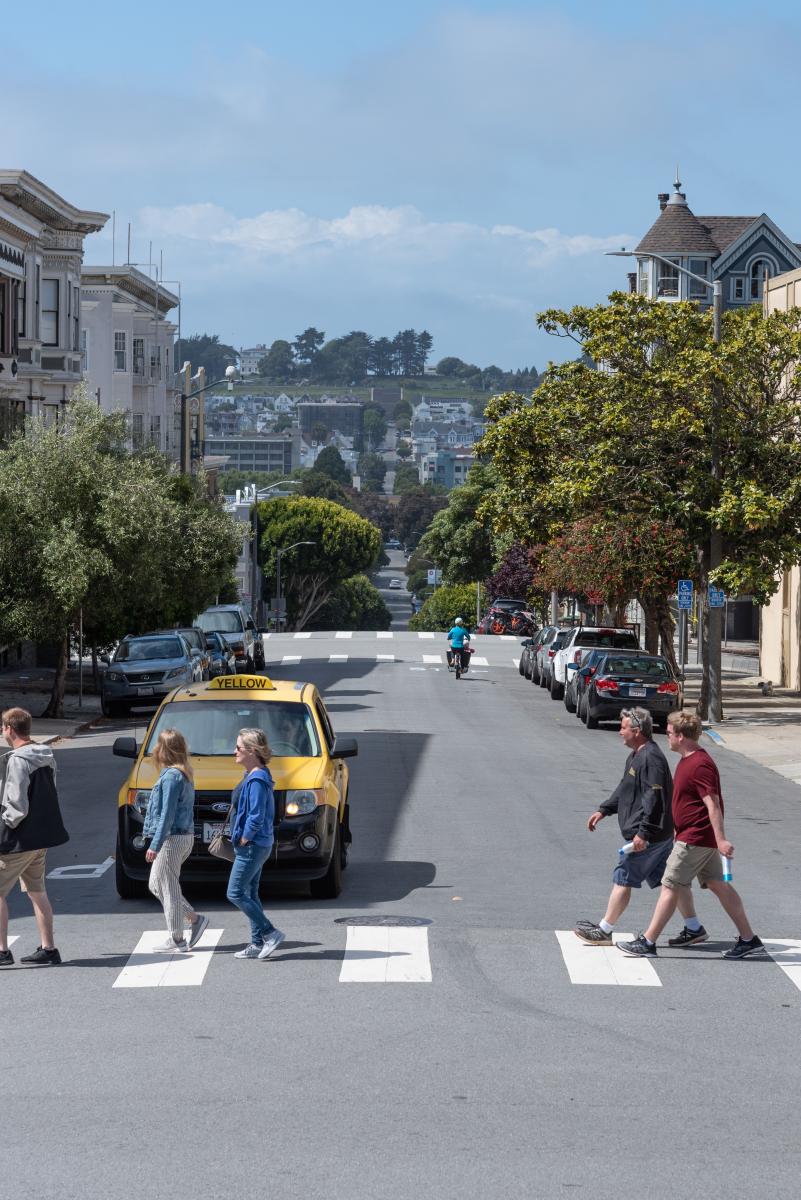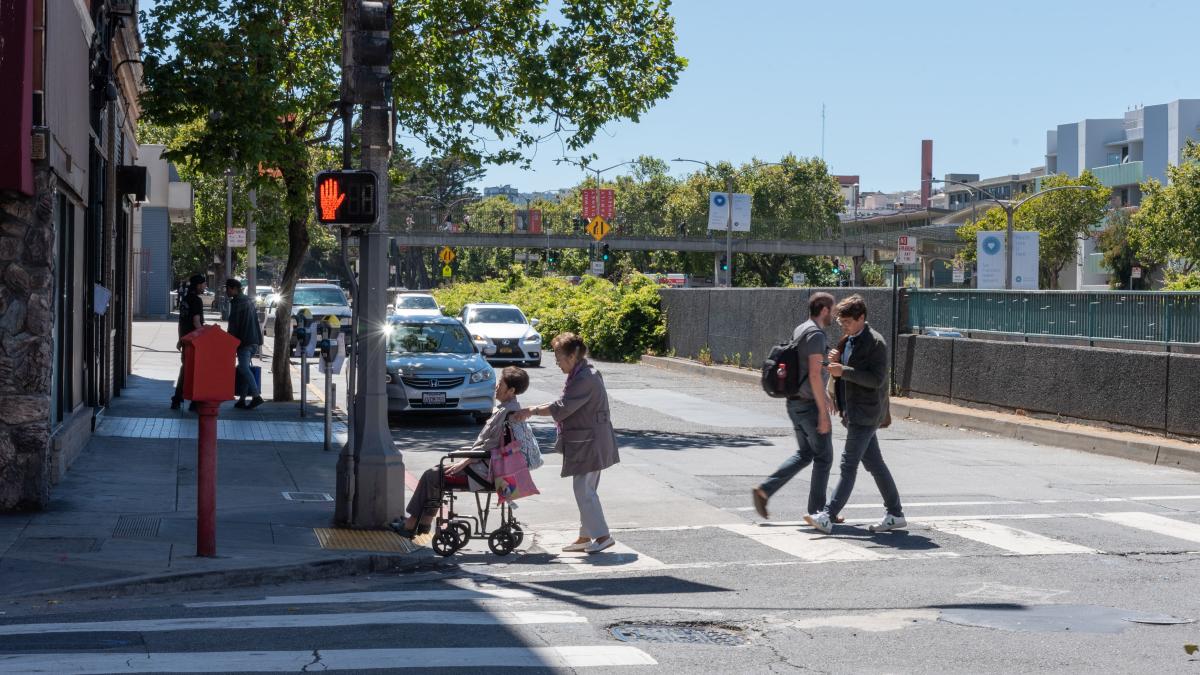
Geary Boulevard is one corridor set to see speed safety cameras as part of our new pilot program.
Speed safety cameras are a proven tool to curb dangerous speeding and save lives.
Now, we can move forward with our plans to pilot them in San Francisco.
This week, the SFMTA Board of Directors approved our contract with Verra Mobility to implement speed cameras. It was our last administrative hurdle to launch a pilot program.
Starting in February 2025, the cameras will monitor vehicle speeds at 33 locations across the city.
The decision comes just one year after Governor Gavin Newsom signed AB 645. It authorized San Francisco and five other California cities to pilot speed cameras for five years.
“We are thrilled to have reached a significant milestone in bringing speed safety cameras to San Francisco's streets” said Viktoriya Wise, streets director for the SFMTA. “Speeding is the leading cause of serious injuries and fatalities in San Francisco. That’s why we've moved swiftly to be the first city in California to introduce this life-saving tool proven to reduce speeding and protect lives.”

Learn why we’re installing cameras on corridors like Columbus Avenue.
What to expect from the pilot program
Program timing
Crews will start installing cameras in December. They'll test and calibrate the new tools before turning them on in February 2025.
Camera locations
The cameras will be located along the city's High Injury Network. That's where most traffic-related injuries and fatalities happen in San Francisco. This way, we can make the greatest impact reducing serious injuries and fatalities.
The cameras will be located near:
- Schools
- Parks
- Senior centers
- Commercial districts
These locations will help us keep our city's most vulnerable residents safe from speeding vehicles.
You can view a map of these locations on our Speed Safety Cameras webpage.
Warning policy
Cameras will begin operating in February. For the first 60 days, we will issue no-fee warning tickets to people speeding.
Starting in April 2025, citations will be issued to the registered owner of the vehicle caught speeding. The citation amounts are set by the state and will depend on the speed of the vehicle.
Penalties:
- 11-15 MPH over speed limit: $50
- 16-25 MPH over speed limit: $100
- 26+ MPH over speed limit: $200
- 100 miles per hour: $500

Along with city partners, we’re working to make it safer to walk, bike and roll.
Prioritizing safety as a city
The approval at the SFMTA Board of Directors marked the eighth and final legislative approval required to kick off this program. In March, Mayor London Breed introduced legislation to speed up the process to implement speed cameras. She recognized that speed cameras will prevent traffic injuries and deaths.
"Speed cameras are a proven tool to save lives. We are glad San Francisco has secured an experienced vendor that’s already working with leading Vision Zero cities to move forward quickly in getting cameras on the ground,” said Jodie Madeiros, executive director of Walk SF.

We’ve also made other safety improvements across the city. They include longer crossing times for people walking.
Advancing our traffic safety work
Reducing vehicle speeds is a critical part of San Francisco’s Vision Zero strategy. Vision Zero is San Francisco’s policy aimed to eliminate traffic deaths.
Speed is still the leading cause of severe injuries and fatalities on our city's streets. Speed cameras will enhance the system of safety improvements we have already completed. These include:
- Traffic calming infrastructure, like speed humps or raised crosswalks
- Lowered speed limits
- Daylighting to improve visibility at intersections
- Longer crossing times for people walking
Teams across our agency work hard to carry out these measures and others. Our goal: save lives and create joyful streets for all.